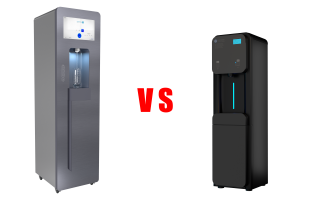
Email security may not always be top-of-mind, but failing to properly configure key settings can open your organization to severe security risks. If your current IT provider hasn’t set up protections like SPF, DKIM, and DMARC correctly, your business could be exposed to phishing, spoofing, and potentially devastating data breaches. In this article, we’ll walk through a scenario that highlights the importance of email authentication settings, show how these protections are part of a broader security strategy, and outline the potential compliance risks if these settings are neglected.
The Importance of Email Authentication Settings (SPF, DKIM, DMARC)
Email authentication protocols – SPF, DKIM, and DMARC – are essential tools that help protect your domain and recipients from fraudulent emails. These settings work together to verify that incoming emails are genuinely from your domain, that they haven’t been tampered with, and that they comply with security policies.
Let’s briefly break down each one:
- SPF (Sender Policy Framework) specifies which IP addresses or servers can send emails for your domain. It helps prevent unauthorized users from sending emails that appear to come from your domain.
- DKIM (DomainKeys Identified Mail) adds a digital signature to emails, ensuring they haven’t been altered in transit.
- DMARC (Domain-Based Message Authentication, Reporting, and Conformance) builds on SPF and DKIM, specifying what actions to take when an email fails these checks (such as rejecting or
quarantining it).
Together, these settings form a powerful defense against phishing and spoofing attacks, protecting both your business and your clients.
Real-Life Scenario: A Missed Email Authentication Configuration
Imagine this scenario: you work with a supplier who regularly sends invoices. However, their emails keep getting quarantined or marked as spam because their domain settings lack correct SPF and DKIM configurations. Unbeknownst to you, their IT provider hasn’t set up these protections correctly. One day, a phishing attack slips through using a spoofed version of the supplier’s email address. The email looks exactly like the supplier’s typical invoices, but it includes malicious links and a ransomware payload. An employee, seeing this familiar sender, unwittingly clicks the link, launching ransomware across your network.
How Could Proper Email Security Have Helped?
If the supplier’s domain had been configured with proper SPF, DKIM, and DMARC settings, this spoofed email would have failed verification and been quarantined or rejected before reaching your team. Correct settings would have protected your business from this costly attack, sparing you from potential data loss, downtime, and financial repercussions. Instead, due to inadequate email security, your business faces the risk of stolen data and compromised client trust.
Consider this: Has your IT provider implemented the correct email security settings on your own domain?
Email Authentication Misconfigurations: A Sign of Broader Security Issues
If your IT provider has not set up proper SPF, DKIM, and DMARC records, it may indicate other gaps in your cybersecurity defenses. Email security is only one aspect of a comprehensive security strategy. Organizations that overlook or mishandle these basics might also neglect other critical protections, such as firewalls, network segmentation, regular vulnerability scans, or endpoint protection. The ineffectiveness in one area often signals similar negligence across the board, putting your entire network at risk.
What else might be slipping through the cracks if foundational settings like SPF aren’t configured correctly?

Compliance Risks: What Happens When Neglected Security Leads to a Breach
Beyond the immediate risks of phishing and ransomware, failing to take appropriate steps to secure your email could expose your business to compliance issues. Many industries have strict data protection standards, such as HIPAA, GDPR, and CCPA. If you suffer a data breach due to insufficient security measures – especially if you were informed about the vulnerabilities and did nothing – your business may face fines, audits, and lawsuits.
For instance, under the Health Insurance Portability and Accountability Act (HIPAA), violations can result in fines ranging from $100 to $50,000 per violation, with a maximum annual penalty of $1.5 million per violation category. These penalties are based on the level of negligence, meaning that if an organization was aware of a vulnerability and failed to act, the fines could be substantial. (source: hipaajournal.com)
Similarly, the Federal Trade Commission (FTC) has taken action against organizations that failed to maintain adequate security measures, leading to consumer harm. The FTC has charged companies with violating Section 5 of the FTC Act, which prohibits unfair or deceptive acts or practices, resulting in significant fines and mandated corrective actions. (source: ftc.gov)
Let’s say ransomware encrypted your data, shutting down your operations. Investigators later discover that your IT provider was aware of your misconfigured email settings, but didn’t correct them or inform you of the risks. Your business could be held liable for failing to take proactive steps to safeguard sensitive information. Not only could this lead to legal repercussions, but the damage to your reputation could be equally devastating.
Conclusion: Proactively Protect Your Business
Correctly configured SPF, DKIM, and DMARC settings are essential to a secure email environment and serve as a foundational step in protecting against phishing, spoofing, and data breaches. If your IT provider has not prioritized these configurations, it’s worth questioning what other security measures might be missing. Proactively addressing these issues now can protect your business from unnecessary risks, uphold compliance standards, and give you peace of mind knowing your data – and your clients’ data – is safe.
If you’re unsure about your current email security configuration, or if you’d like a second opinion on your overall security posture, reach out to a provider who prioritizes comprehensive cybersecurity.
Don’t wait until a breach happens to realize the value of robust email authentication
Contact:
Document Solutions Business Life Simplified
Phone: 1-908-653-0600
Website: https://www.dsbls.com



